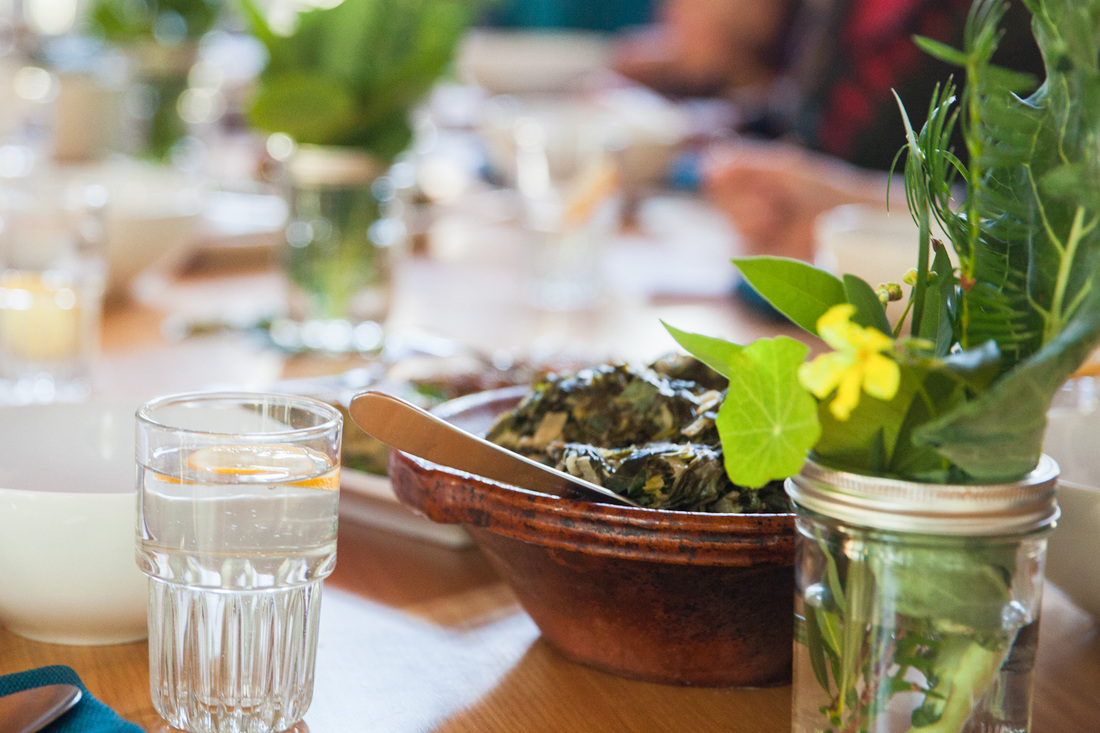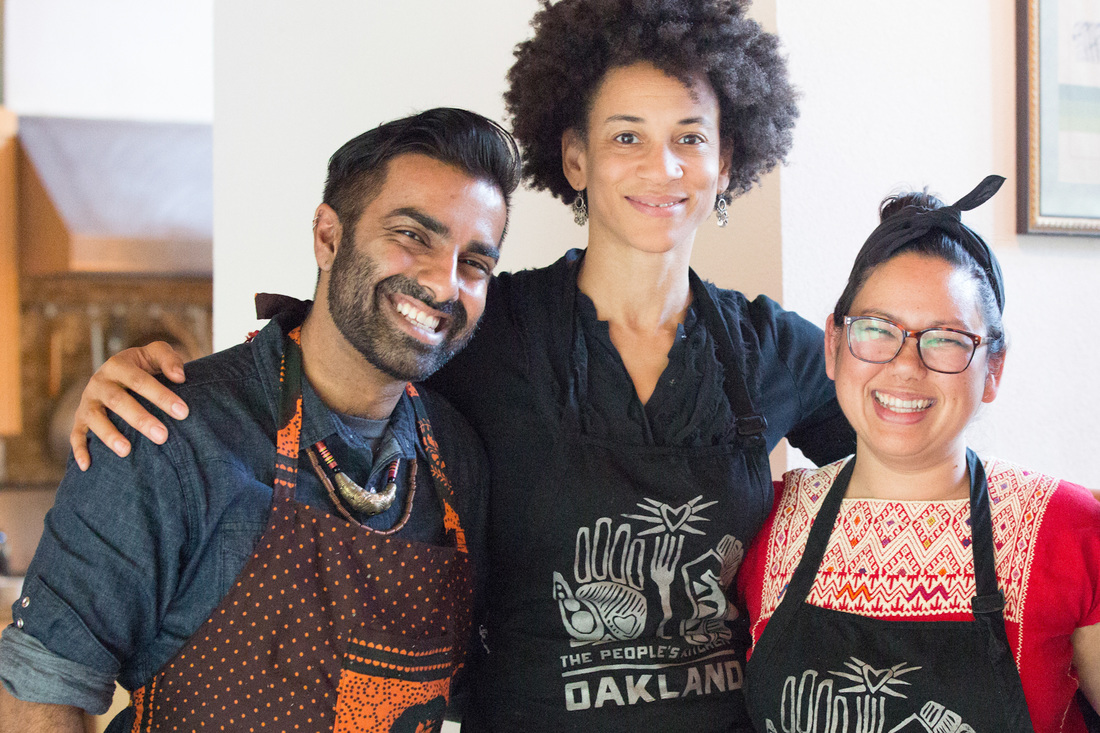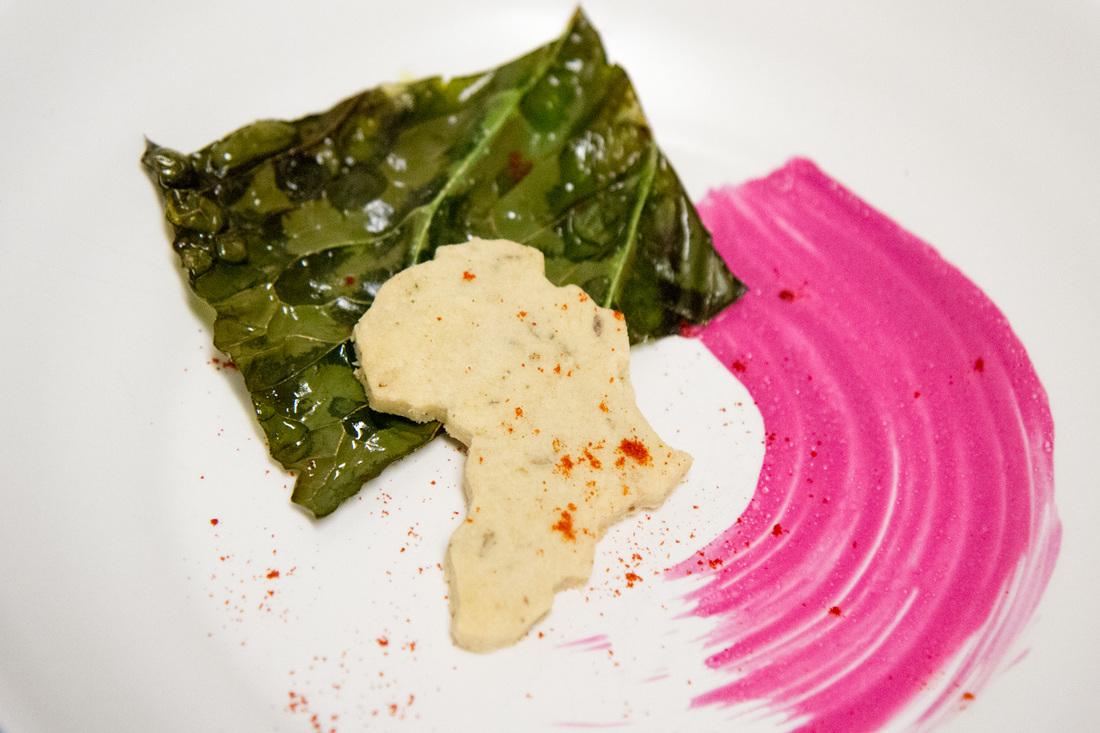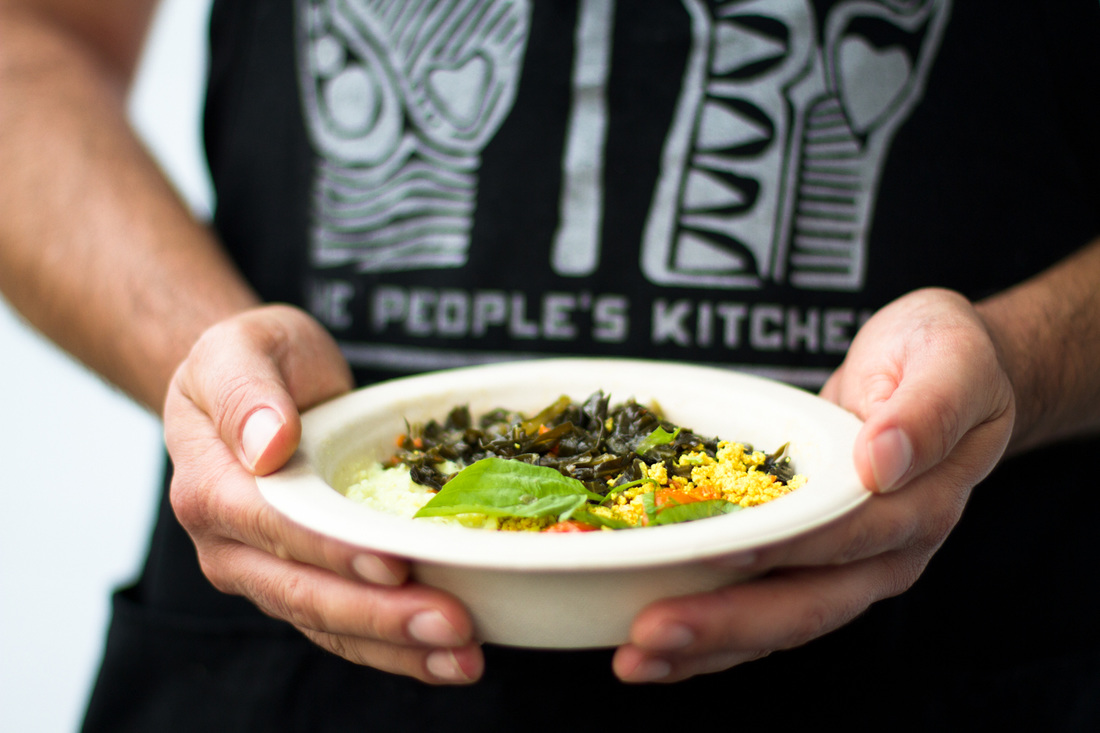Written in our family’s recipes are the maps of our migrations and the stories of our resilience. We, as the People’s Kitchen Collective based in Oakland, California, believe that sharing food with each other is a powerful tool for organizing communities. We prepare food that celebrates centuries of shared struggle. Meals are seasoned with love and knowledge that is generations deep. Along with providing hot, nutritious, and delicious meals, we are committed to sharing the skills needed to cook and survive. While we fill the hunger of our bellies, we nourish our souls and communities.
This February, the People’s Kitchen Collective was invited to Montalvo’s Lucas Artists Residency Program. During our week-long engagement, we prepared a daily meal for the LAP artist community and guests. Our menus reflected the diverse histories and backgrounds of collective members Sita Kuratomi Bhaumik, Jocelyn Jackson, and Saqib Keval. We engaged with Artist Fellows in considering the intersections of creative practice and social justice.
Collectively cooking and sharing food is sanctified and celebrated community work in many cultures. With the passage of time, systems of imperialism—including capitalism, colonialism, and gentrification—have turned cooking and eating into an inaccessible burden. Food and control over what we put into our bodies is being systematically taken away from our communities. Urban food deserts have become commonplace in poor black and brown spaces where systemic racism has made liquor stores and fast food chains more abundant than grocery stores. Due to these systems, our diets have changed to favor chemicals, fast “food,” and false knowledge. It has become increasingly difficult to cook and share meals. This also restricts our ability to share cultures, space, struggles, and solidarity.
We often serve pay-what-you-can meals that bring together diverse groups in the kitchen and at the table to share in food, art, stories, and rebellion. These dining experiences are collaborations between artists, farmers, activists, scholars, and chefs. We have crafted these dinners throughout the Bay Area at partner restaurants and institutions including the Museum of the African Diaspora (MoAD) and SomARTS, and in diverse cities such as Toronto, NYC, Portland and Detroit.
Twice a year we prepare a free, nutritious meal of grits and greens for hundreds of people in Oakland. This is rooted in the radical, participatory, and nourishing legacy of the Black Panther Party for Self Defense. In 1969 the Black Panther Party began one of their most successful survival programs that provided a free, hot breakfast to thousands of black children across America. The Free Breakfast for School Children was so successful that the FBI considered it the biggest threat to national security. This radical and nourishing action was a catalyst for the US government to eventually provide free meals for low income youth nationwide.





